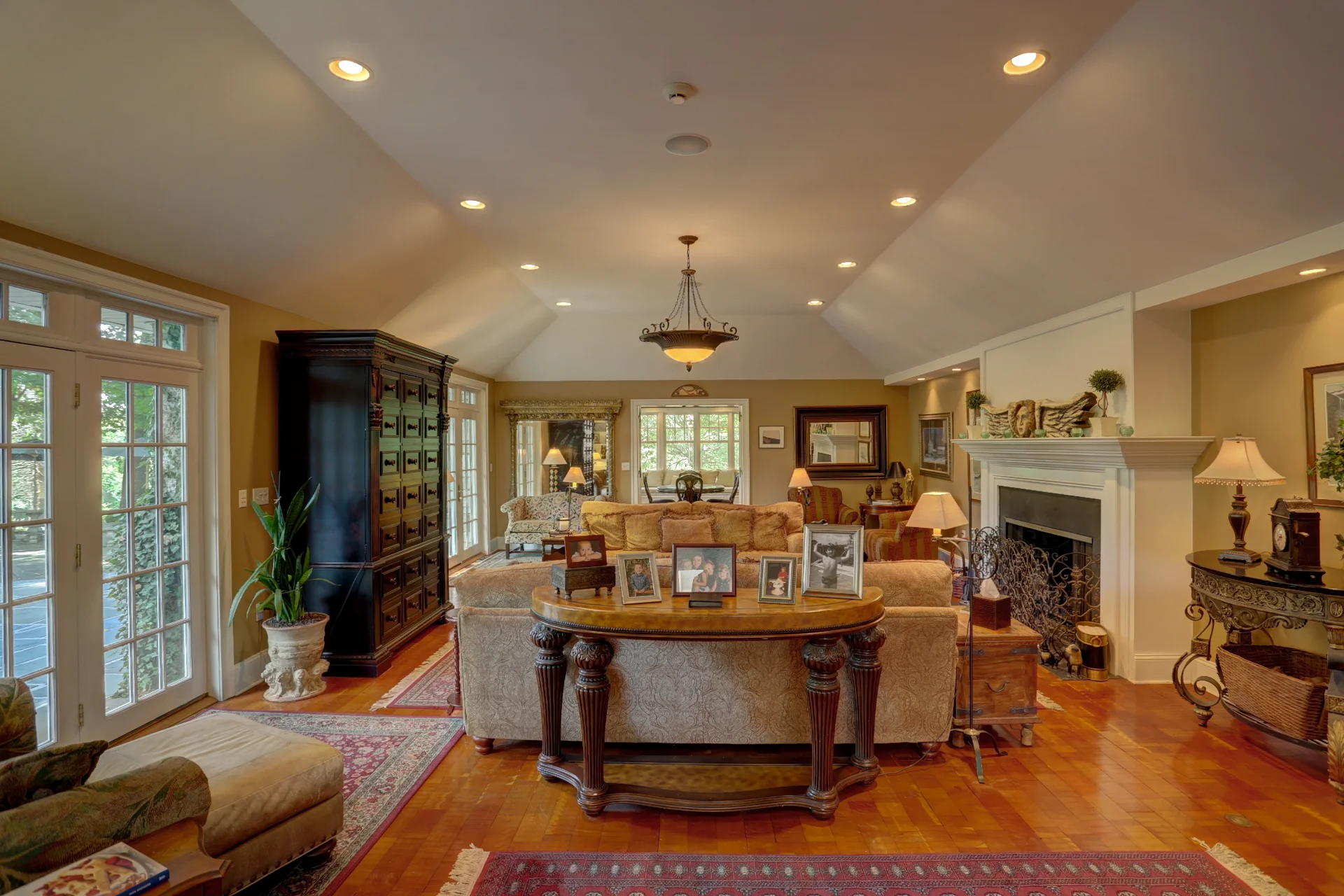The Right Next Step
The Long Community at Highland – A Presbyterian Senior Living Community
Life is made up of days, months, years, and moments. Everchanging and filled with transitions and adjustments. For many caregivers, moving a loved one to an assisted living or personal care community can be a difficult transition to make—but it doesn’t have to be.
When Susan Halls was looking for a space for her parents to age in place, they toured The Long Community at Highland—A Presbyterian Senior Living Community, in Lancaster, Pa. For Halls, aging in place would provide her parents with a sense of consistency and normalcy, even as their healthcare needs increased. Choosing an assisted living community, like the Long Community at Highland, meant they would not have to relocate to another senior living home should their healthcare needs change.
After touring the communities, Halls’s mother said that the Long Community campus felt like home to her, and that she could envision herself living there. The Lancaster campus boasts private, individualized, climate-controlled residences with spacious walk-in showers; a community fitness center; onsite physicians; 24-hour staffing; an emergency call system; and an extensive social calendar. The biggest factor that closed the deal for Halls’s parents was the fact that The Long Community allows pets. And so they made the move with their beloved cat to the personal care community. “Their pet cat has really provided my mother with a lot of support. Especially recently, my father did pass away, and it was really special to have her pet with her during this time,” said Halls.
What makes a place feel like home is not just the physical walls, but the people you’re surrounded by. Halls does not regret encouraging her parents’ transition to the Long Community at Highland because it has provided her a sense of relief that her parents are being cared for with respect and dignity by a compassionate staff. “What really stands out, no matter what the situation, no matter what my concern is, [members of the staff] always listen to me and show me great respect. The people that work here—it is definitely more than a job to them. They truly care for the residents here and also for the families involved,” said Halls.
Through organizations like Presbyterian Senior Living—a not-for-profit organization founded in 1927—seniors are able to live fulfilling lives, feeling empowered in their independent choices. At the Long Community at Highland, the staff works one-on-one with residents to develop individualized service plans based on their interests and abilities, to maintain as much independence and autonomy as possible as their capabilities change. “I’m very grateful for the amount of personal care and attention that is given to my mother. When she needed a little extra support, everyone on the team was there to give her the extra emotional support that she needed,” said Halls.
According to Presbyterian Senior Living’s Corporate Sales Manager of Assisted Living and Personal Care, Leslie Winnick, one of the biggest misconceptions about assisted living communities is that they are the same as a skilled nursing home. “A personal care or assisted living community may be a good in-between choice to provide the required personal care tasks to your loved one, while allowing them more independence than they may have in a nursing home setting, while giving them opportunities for socialization. Many seniors also feel they will lose their privacy and independence. The majority of Presbyterian Senior Living’s personal care and assisted living apartments and suites are private,” said Winnick.
The decision to transition to a personal care home has to be made when it is not safe for a senior to live alone at home. One of the biggest issues facing older people is loneliness and isolation from family and peers. This deficiency in companionship can lead to a wide array of unintended consequences, including depression, anxiety, and increased memory loss. Other factors in the decision making process include: difficulty standing on his or her own; forgetfulness; weight loss or gain; unexplained bruising or wounds; financial trouble; poor medication management; depression; and caregiver burnout.
The organization works closely with its incoming residents and their families to help ease the transition to an assisted living or personal care community. They facilitate conversations to allow everyone to share their feelings, so the staff can formulate a plan to help emotionally support residents and their families during this transition.
While the initial transition can be hard, there is high potential for increased quality of life and happiness for your loved one. “For many seniors, transitioning to a personal care home offers more opportunities for socialization, less stress, better food, and a safer and more attractive living space. While the transition can be difficult at first, research suggests most seniors are actually happier living in senior living communities,” Winnick said.
For caregivers looking for the right next step for their aging loved ones, Presbyterian Senior Living’s Long Community at Highland could be the next moment, the next step, on their journey to lead a fulfilling, independent life.
For more information on senior living opportunities that include independent living and assisted living options at the Long Community at Highland, please visit longcommunityhighland.org
By Allison Rohland









